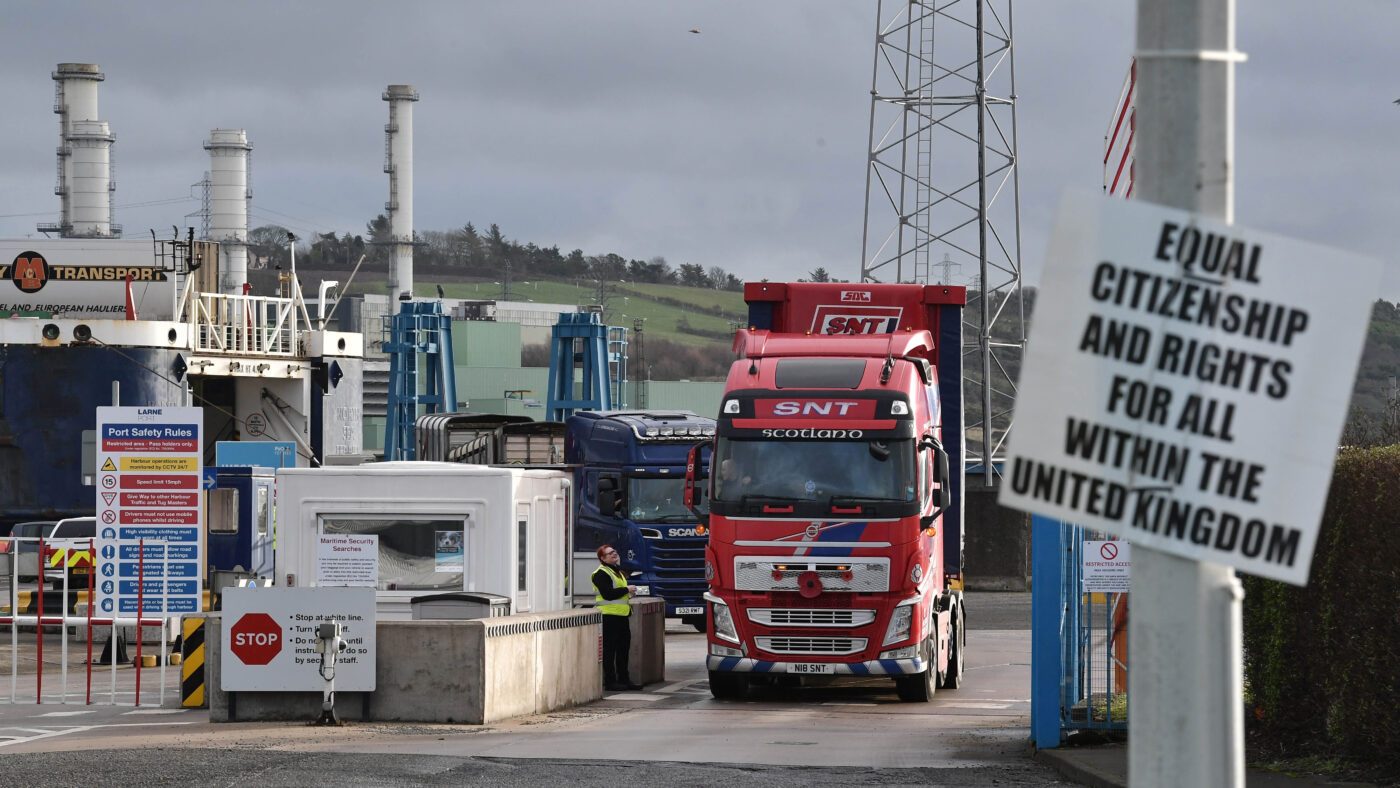Under Rishi Sunak’s leadership, the Conservative Party has tried hard to disguise and contain a civil war among its MPs and members. Its efforts have been partly successful, but it is impossible to keep these increasingly messy skirmishes out of public view entirely.
The latest dispute to hit the media involved the unglamorous subject of parcel regulations for Northern Ireland.
I wrote about the contents of the Postal Packages (Miscellaneous Amendments Regulations) 2023 statutory instrument in an article last week. The legislation, which enacts part of Sunak’s Windsor Framework, effectively requires every parcel sent from Great Britain to Northern Ireland to be treated like a ‘foreign postal packet’. These changes are likely, at a minimum, to involve prohibitive costs and paperwork for businesses selling goods to the province. It will also, for the first time, require customs checks on parcels moving between regions of the UK.
This week, as the regulations reached the Second Delegated Legislation Committee, which scrutinises statutory instruments, five Eurosceptic Tory MPs were unceremoniously kicked off the committee. Rather than merely apply a rubber stamp, the quintet had raised concerns about the regulations, asked questions about their likely impact and may even have voted against them yesterday evening.
The speaker of the House of Commons, Sir Lindsay Hoyle, confirmed that the government’s last minute changes to the committee were ‘within the rules’. However, the DUP’s Sammy Wilson claimed that the tactics would make ‘Kim Jung-Un blush’ and Conservative Brexiteers from the European Research Group (ERG) vented their fury, with Mark Francois describing the strategy as ‘bent’.
One of the five removed MPs, Sir James Duddridge, went on to attack the postal regulations on the basis that they threatened to ‘drive a coach and horses through Brexit’. Meanwhile, a source in the ERG told the Daily Express that, ‘in essence we are creating a border with Northern Ireland for parcels where the EU can unilaterally change its mind’.
The Government disputed that the new rules would have such a drastic effect, but its interpretation seemed to contradict its own legal text. The Treasury junior minister, Victoria Atkins, told the committee meeting: ‘Someone in GB sending parcels to NI will not need to engage with any customs processes.’
She also claimed that ‘businesses in GB selling to consumers in NI will not need to complete customs declarations whether international or otherwise’. That would appear to be good news, but nobody who has followed the unfolding disaster of the Irish Sea border could treat the Government’s statements with anything less than extreme scepticism.
While companies selling directly to consumers in Northern Ireland may not need to complete ‘customs declarations’, for example, the wording leaves open the possibility that they will have to ‘engage’ with customs processes at some level or provide similar information. Indeed, the minister admitted openly that parcels destined for businesses in Ulster would have to travel through the ‘green lane’, which involves a registration process and labelling requirements, because they will be treated ‘as equivalent freight movements’.
The Government has persistently played semantic games around the internal-UK border with Northern Ireland. Its critics will not forget a long series of denials and misrepresentations of both the original Protocol and Sunak’s Framework.
They began with Boris Johnson advising a businessman in Belfast to throw any additional paperwork he was asked to complete in the bin and recently included James Cleverly telling the House of Lords that new labelling rules would apply UK-wide.
The difference between the Government’s bullish claims to have removed ‘any sense’ of a border in the Irish Sea, and its enactment of legislation that makes the frontier look ever more permanent, has played a sporadic but important role in Tory infighting. The Centre for Brexit Policy recently relaunched its proposals for the Protocol and Framework to be replaced by a system of ‘mutual enforcement’, backed by the ERG and the DUP.
The paper urged the Government to abandon the current arrangements as soon as possible, with or without the agreement of the EU. To an administration that is still trying to cast its deal with Brussels as a significant achievement, that was a mutinous intervention.
For unionists in Ulster, the prospect of Northern Ireland re-emerging as a battleground in the Conservative power-struggle will be familiar and uncomfortable. Boris Johnson used Theresa May’s ‘backstop’ as a pretext to attack her leadership, before performing a U-turn and erecting an Irish Sea border, under the Northern Ireland Protocol.
In the intervening years, more strident Tory ministers threatened to fix the damage inflicted on the Union through legislation or by triggering Article 16, but none of these proposed remedies materialised. There are disagreements among unionists, in any case, as to whether the sea border can be tempered best by unilateral action by the Government, or through a closer relationship between the whole UK and the EU.
Since 2016 the Conservatives have repeatedly claimed to care deeply about Northern Ireland’s role in its ‘precious Union’, while steadily removing or diluting important aspects of the province’s place in the UK.
Right-leaning Tories may be increasingly vocal in their criticisms of Rishi Sunak, and the Framework is certainly one of their complaints, but that doesn’t mean the issue would be a priority for his critics. And it certainly doesn’t guarantee that they would take action, if they were to somehow regain control of the party.
Click here to subscribe to our daily briefing – the best pieces from CapX and across the web.
CapX depends on the generosity of its readers. If you value what we do, please consider making a donation.


